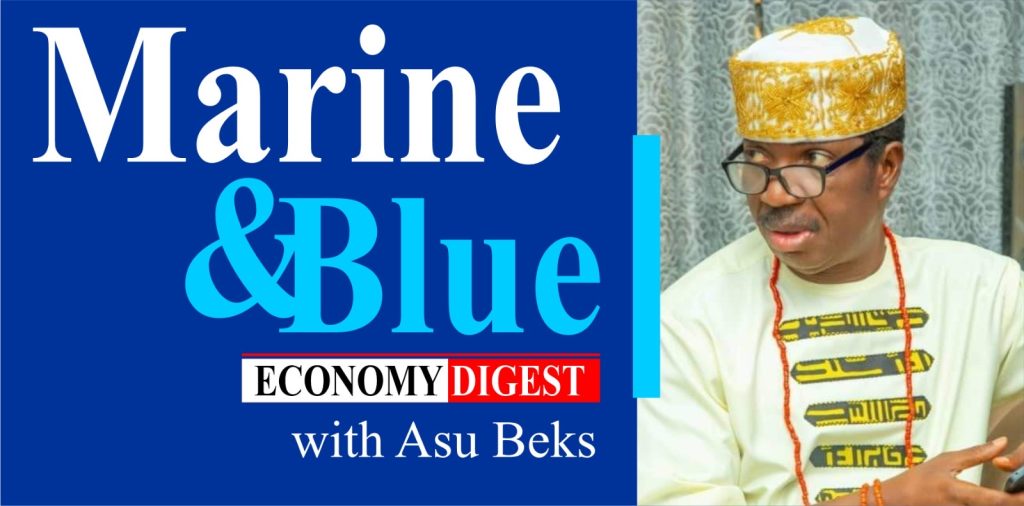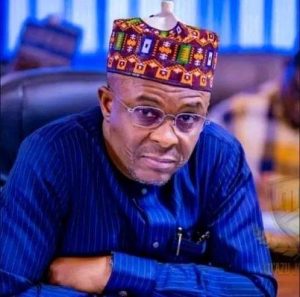

Founded 52 years ago in October 1972, the Port Management Association of West and Central Africa (PMAWCA) was established under the auspices of the Economic Commission for Africa (UNECA). The main objective of the 40 member group is to contribute towards improvement, coordination and harmonization of port and harbour activities, services and infrastructure among countries in West and Central Africa subregion.
The election last week of Nigeria’s Dr. Abubakar Dantsoho, Managing Director of Nigerian Ports Authority, is the first time in the history of the regional body a Nigerian has been elected as Chairman. Dantsoho’s election is coming on the heels of the establishment of the Ministry of Marine and Blue Economy by President Bola Ahmed Tinubu.
There is no doubt that the challenges ahead of Dantsoho and his team appear herculean on account of the rising insecurity in the Gulf of Guinea, coupled with the dearth of infrastructure in most of the ports in the region. Dantsoho’s election came last week at the close of the 44th annual Council and 19th round table of Directors of PMAWCA which held in Conakry, Guinea.
In his acceptance speech, Dantsoho said his election as the new helmsman of the group represents a milestone in the continuing march of West and Central Africa maritime states towards global competitiveness and delivery of world class services. He reiterated the commitment of Nigeria towards a revolutionary turnaround of the country’s maritime industry, including port modernization, infrastructure, digitization and automation.
But for Dantsoho and his fellow Board of Directors, who are CEOs of the regional ports, the time for action is now. The new PMAWCA boss has the unique opportunity to plant his name in gold by embarking on aggressive programmes, projects and campaigns that will usher in a new dawn in port administration in the region. He must galvanize his fellow Board Directors to take advantage of the huge potentials which the global multi trillion dollar marine and blue economy market, which remains largely untapped in the region, offers.
Member states must be ready to invest heavily in port infrastructure upgrade, manpower and ICT development among other critical projects. With the rising cases of piracy in the Gulf of Guinea, where Nigeria appears to be playing the lead role, there is the urgent need for partnership and collaborative efforts at ensuring that the region becomes safe and secure for maritime trade.
DEARTH OF DRY DOCK FACILITIES IN THE GULF OF GUINEA
Ship repair and its associated activities remain the liveblood of any thriving and sustainable shipping industry. These crucial services including hull cleaning and treatment, machinery servicing and expert steel work are the backbone that keep vessels operating at peak. Recent reports indicate that many shipyards in West and Central Africa are barely struggling to remain afloat on account of limited access to international funding, and are not likely to attract quality patronage.
Investment is a crucial aspect of global shipping and this is why Dantsoho and his new team must galvanize member states to explore opportunities for global financing institutions to take advantage of the emerging opportunities in the region. He must challenge his colleagues to make ports in the region more competitive, devoid of cumbersome cargo clearing and evacuation protocols.
Back in the days when the African Maritime Transport Charter (AMTC) was being crafted, there was a clear need to revitalize the ship repair industry in Africa. African countries are, by the Articles of the AMTC, encouraged to meet the needs of ship building and repair yards. The goal was to establish top notch shipyards that could compete favorably with those in Europe, America and Asia. Countries like Japan, South Korea and China for example, have thriving shipbuilding and repair yards which have created employment opportunities for thousands of their population, thereby fueling economic growth in their respective countries.
With our thriving oil and gas resources, Nigeria has the potential to encourage investment in the construction of specialized vessels such as offshore supply boats, platform supply vessels and anchor handling tug supply. This is where Nigeria’s Cabotage Vessel Financing Fund (CVFF) would have come handy. But unfortunately, the fund which was established over 16 years ago, is akin to a tool for window dressing.

